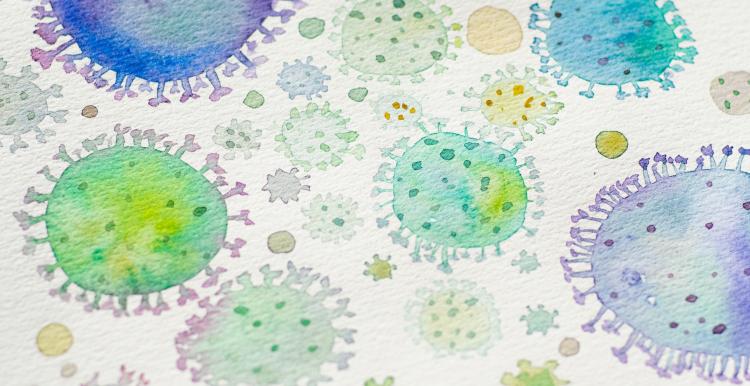Myths about the flu jab

Myth 1 - flu is just a ‘bad cold’
In the UK, the flu season runs from about October to March. Several hundred thousand people per year are admitted to hospital with severe symptoms of flu and Public Health England estimates that on average about 17,000 die from the flu and its complications in England
Flu is a serious viral illness causing fever, muscle aches, fatigue and illness for around 7- 10 days. However, as the figures show, it can cause death among vulnerable groups including older people, and those with an underlying health
So, Flu isn’t simply a bad cold – if it was the UK NHS would not be organising a vaccination programme.
Myth 2 - the flu vaccine gives you flu
This is a common myth that still persists. The fact is though you can’t catch flu from a flu jab. The flu vaccination for adults contains an inactivated flu virus. This is enough for your immune system to make protective antibodies, but it is not capable giving you real flu.
You can have side-effects from the jab such as muscle aches and even a mild temperature for a day or two and this is all perfectly normal and nothing to worry about.
Some people also say – ‘I got the flu after having the flu jab ‘- it is likely they were already coming down with the flu before they got the jab – it can take up to 4 days to get flu once you have been infected with the virus.
The facts is - you can’t catch flu from a flu jab – the virus in it is inactivated and not capable of giving us flu.
Myth 3- children only get the vaccine to protect others
The UK has followed other countries and started to recommend routine flu vaccinations to all children. For children, from 2-17 years of age a nasal vaccine is given which is a spray squirted up the nostril - no injection is involved.
Children are ‘super-spreaders’ of the flu virus – they pass the infection around their families and communities because of the way children interact and play often in a very close way. So, by vaccinating children, you are stopping them spreading it around - particularly to more vulnerable people such as the elderly.
Children do get flu and, although flu is a rare cause of fatality, many are admitted to hospital every year. In some years, up to 40% of hospital admissions and consultations for influenza are in children under 15 years. Those under 5 years of age often have the highest influenza-attributable hospital admission rates.
Flu is a serious illness and children, as well as spreading the disease, can get quite ill – so the vaccine is protecting them as well as others.
Myth 4 - I have allergies so I can’t have a flu jab
This is partly true. Some flu vaccines are made using eggs. This does mean that people who are genuinely allergic to eggs may react to it.
There are egg-free and low egg content vaccinations available for those who need it.
If you are recommended a flu vaccination and allergic to eggs, please ask your GP surgery to arrange this for you.
Myth 5 - adult flu vaccines contain mercury
This myth is often perpetuated online and is totally misleading and wrong.
Some vaccines used to have a mercury-based preservative in them called thiomersal.
Thiomersal contains ethyl mercury which is quite harmless to us as it has been shown not to accumulate in the body and is passed out from our body via our bowels.
The toxic form of mercury is different and is called methyl mercury, which is known to accumulate in the food chain, for example in fish, and in human bodies.
In the US, UK, and Europe, thiomersal was removed from vaccines as a precaution and thiomersal it is not present in any of the annual flu vaccines currently in use in the UK.
For more information on vaccines check out the Vaccine Knowledge Project at Oxford University – see http://vk.ovg.ox.ac.uk/vk/


